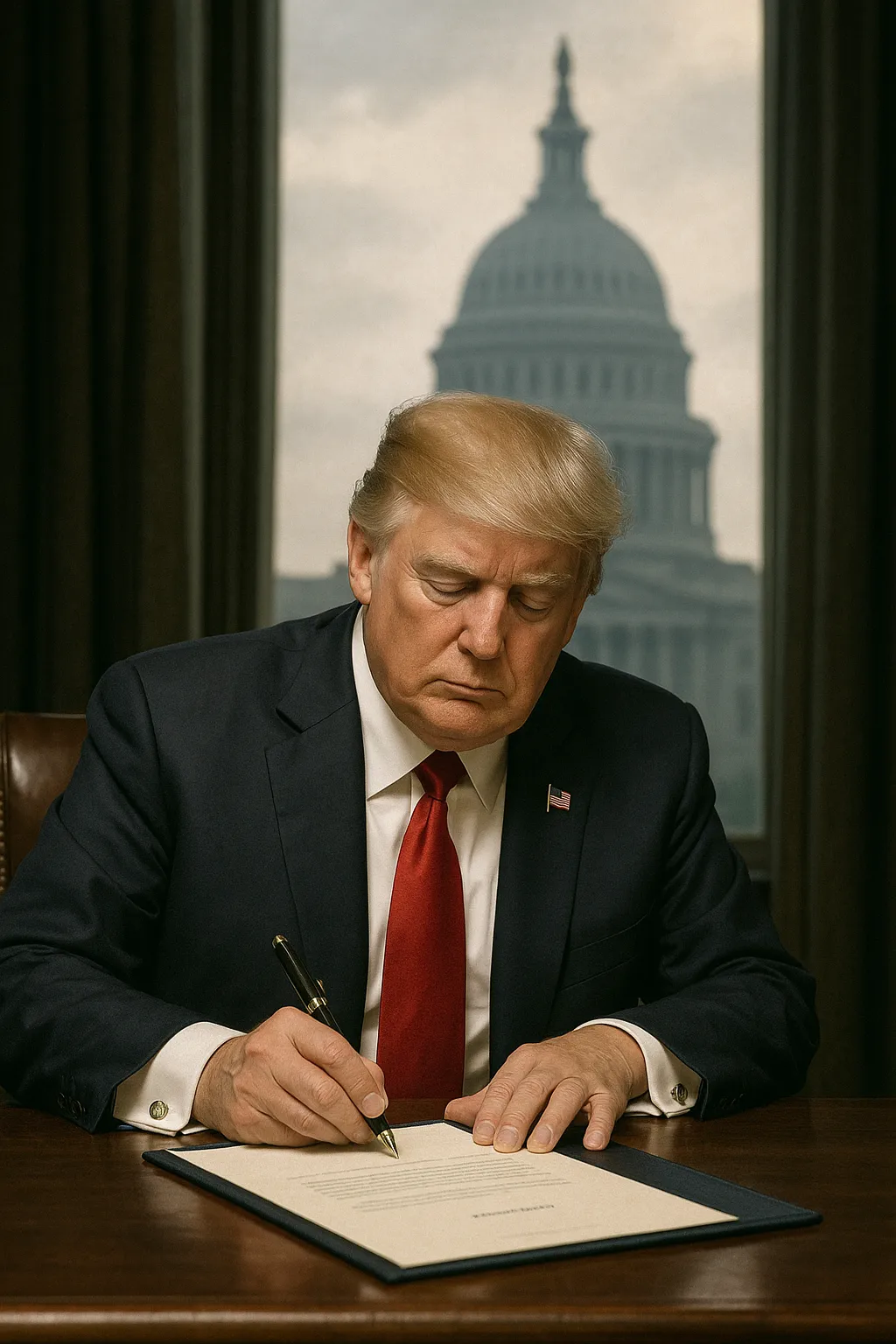Trump Signs Executive Order to End “Cashless Bail” in Washington, D.C.

WASHINGTON, Aug 25 (Reuters) - President Donald Trump signed an executive order on Monday directing federal agencies to end the use of “cashless bail” for defendants in Washington, D.C., and threatening to withhold federal funding from jurisdictions that maintain no-cash-bail policies.
The order instructs the District of Columbia’s law enforcement agencies to detain arrestees in federal custody wherever legally permissible, rather than release them without posting a cash bond. It also empowers the Attorney General to compile and publish a list of jurisdictions that continue to operate cashless bail systems and to recommend revocation of federal grants or projects for those jurisdictions.
A White House memo accompanying the order asserts that cashless-bail policies “allow dangerous individuals to immediately return to the streets and further endanger law-abiding, hardworking Americans,” warning that repeat offenders released without posting bond have reoffended while awaiting trial. The administration has cited studies indicating spikes in crime following the adoption of zero-bail policies in certain counties, though critics dispute the methodology and conclusion of those reports.
Trump had previously called on Congress on August 11 to enact nationwide legislation to ban cashless bail, arguing that pretrial release without financial guarantee undermines public safety. The District of Columbia abolished cash bail in the 1990s, assessing defendants’ release based on flight and safety risks instead of monetary bond. Other states, including Illinois, New Jersey and New Mexico, have since followed suit by eliminating or significantly curtailing cash bail requirements.
Civil rights groups and criminal justice reform advocates condemned the executive action, saying it will disproportionately impact low-income defendants unable to afford cash bonds and worsen overcrowding in detention facilities. They pointed to research showing no clear link between cashless-bail reforms and increases in crime rates. Federal law enforcement officials, however, welcomed the order as a necessary measure to ensure accountability and deter pretrial misconduct.
The executive order marks the latest of several Trump initiatives aimed at centralizing federal authority over local criminal justice policies, following his deployment of federal agents and National Guard troops to the capital earlier this month. With Congress in recess until September, the administration will move forward unilaterally on the bail directive, setting the stage for legal challenges by affected states and municipalities.
Categories
Beauty and fashion Business and finance Climate Entertainment Food and drink Games Health Hobbies and leisure Jobs and education Law and government Other Politics Science Shopping Sports Technology Travel and transportationRecent Posts
Tags